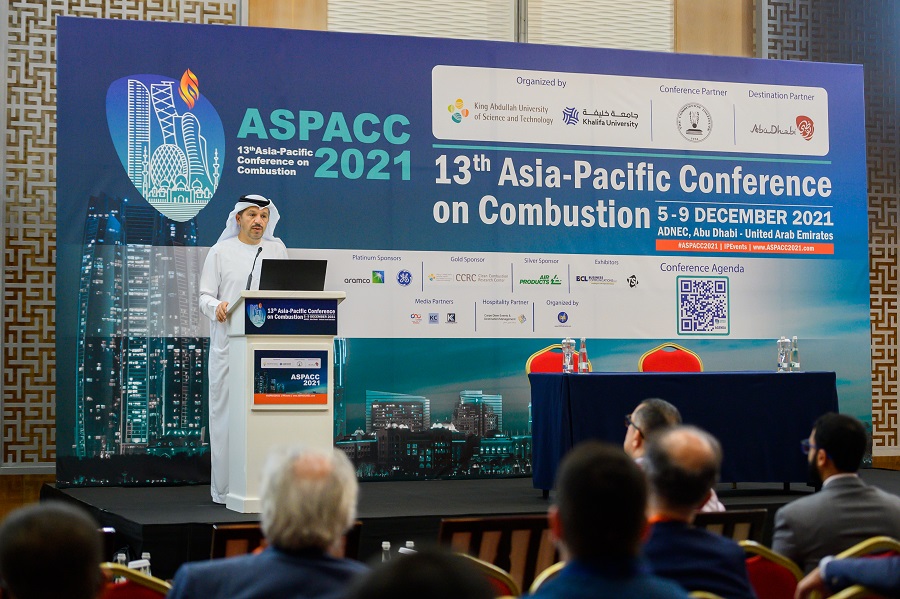
Conference Focusing on Combustion Technologies for Sustainable Energy and Environment, Including ‘Green’ and ‘Blue’ Hydrogen and Ammonia, as well as Synthetic Fuels
Khalifa University of Science and Technology, King Abdullah University of Science and Technology (KAUST), and the Saudi Arabian Section of the Combustion Institute (SASCI) today jointly announced they are organizing the 13th Asia-Pacific Conference on Combustion (ASPACC) for the first time in Abu Dhabi. The event provides a scientific venue for sharing ideas and experiences on the applications of combustion towards sustainable energy and environment.
The Abu Dhabi Convention and Exhibition Bureau – part of the Department of Culture and Tourism – Abu Dhabi is the supporting partner for the 13th ASPACC, a ‘hybrid conference’ that is being held at the Abu Dhabi National Exhibition Centre (ADNEC) from 4-9 December 2021. This sectional meeting for the Asia-Pacific region of the Combustion Institute is the largest meeting of combustion scientists and engineers as it brings together the combustion scientific community with the practitioners of ‘upstream’ technologies in the Gulf Cooperation Council (GCC) and the Middle East and North Africa (MENA) regions. The total number of papers being presented amounts to 221.
The conference is focusing on combustion technologies with substantially reduced carbon emissions that hence have minimal impact on global warming. These include ‘green’ and ‘blue’ hydrogen and ammonia, as well as synthetic fuels that can be used for sustainable power generation. These technologies greatly help the oil and gas industry move towards sustainable growth.
Dr. Arif Sultan Al Hammadi, Executive Vice-President, Khalifa University, said: “Through the Research and Innovation Center on CO2 and Hydrogen (RICH) at Khalifa University and the Clean Combustion Research Center at KAUST, our region is now recognized not only as a major producer of fossil fuels, but also as a leading center of combustion research and with a strong focus on carbon-neutral combustion technologies. Khalifa University is delighted to collaborate with KAUST and SASCI to bring the main combustion meeting to Abu Dhabi, as a forum for exchange of ideas between combustion scientists and engineers.”
Keynote speakers at the event represent University of Sydney, China’s Peking University, Indian Institute of Technology Madras, Tokyo Institute of Technology, Korea Advanced Institute of Science and Technology (KAIST), Taiwan’s National Central University, and King Abdullah University of Science and Technology (KAUST).
Dr. Dimitrios Kyritsis, Local Chair, 13th ASPACC, and Chair of Mechanical Engineering, Khalifa University, said: “This conference brings the largest of the three sectional meetings of the combustion institute – the Asian-Pacific, the US and the European – for the first time to the GCC region. The conference gains importance because of the tectonic shifts in power generation, mobility, and aviation technologies that climate change is causing. As local and international oil and gas industry repositions itself in a world that is witnessing 45-degree ‘scorchers’ in Siberia, and floods in Germany during July, interaction with combustion scientists and engineers becomes crucial in order to realize the potential of the oil-and-gas sector, to contribute towards the transition to a sustainable mode of power generation that will improve the quality of life of a rapidly increasing human population.”
The 13th ASPACC conference also offers an opportunity for research organizations and corporate entities to attract talent from more than 200 science and engineering graduate students and postdoctoral researchers who are expected to attend.
Clarence Michael
Senior English Editor
6 December 2021